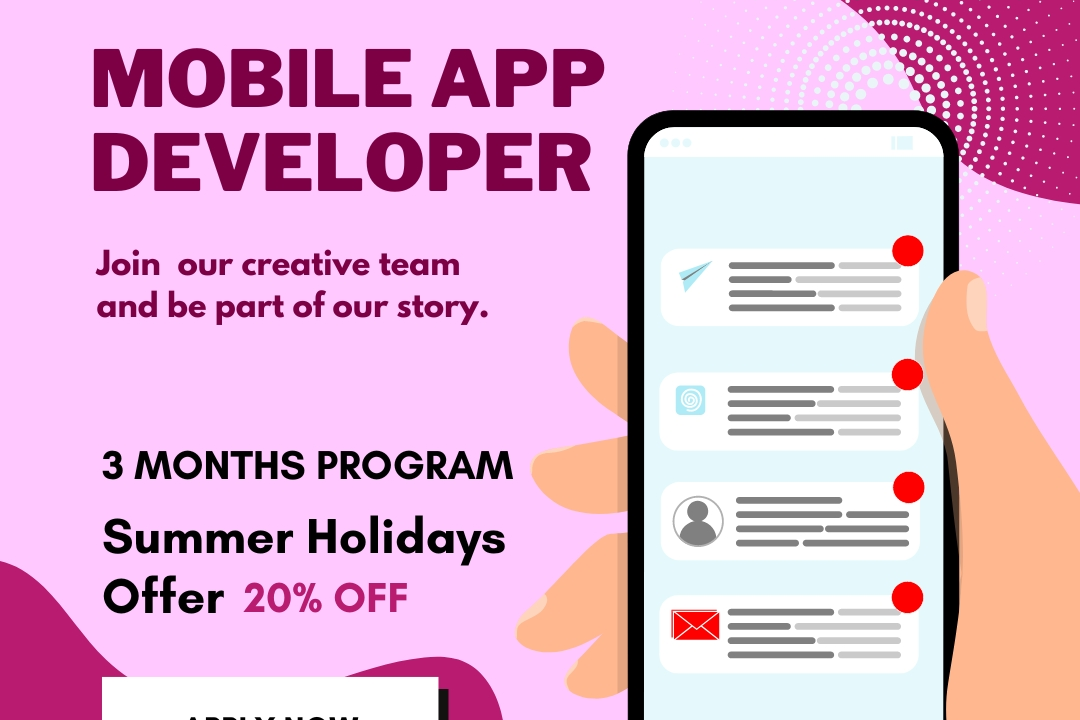Flutter App Performance
Optimizing Flutter App Performance: Tips and Best Practices
Flutter App Performance
Flutter app performance is notable due to its architecture, which facilitates smooth rendering and rapid development. The framework utilizes a direct compilation to native code, eliminating performance bottlenecks associated with JavaScript bridges found in some cross-platform solutions. Its use of the Skia graphics engine allows for fast, hardware-accelerated rendering, ensuring fluid animations and responsive interfaces. Additionally, Flutter's widget-centric design enables developers to build UIs that can be optimized for performance, allowing for adaptive rendering and efficient state management. Overall, with proper coding practices and optimization techniques, Flutter apps can achieve performance levels comparable to native applications, making it a strong choice for cross-platform development.
To Download Our Brochure: https://www.justacademy.co/download-brochure-for-free
Message us for more information: +91 9987184296
1 - Widget Tree Management: Flutter uses a tree based structure of widgets. Understanding how to efficiently manage and minimize the widget tree can significantly enhance performance.
2) Repaint Boundary: Utilize the `RepaintBoundary` widget to isolate parts of the widget tree to reduce the amount of repainting during state changes, thus improving rendering performance.
3) Rendering Pipeline: Familiarize students with Flutter’s rendering pipeline, where layers are drawn onto the screen. Understanding this helps in optimizing drawing performance.
4) Asynchronous Programming: Encourage the use of asynchronous programming with `Future` and `Stream` to prevent UI thread blocking, leading to smoother apps.
5) Image Optimization: Teach techniques for optimizing images, including using the proper resolution, format, and caching strategies to improve loading times and performance.
6) State Management: Discuss different state management solutions (like Provider, BLoC, Riverpod) that help in managing app states more efficiently without unnecessary rebuilds.
7) ListView and GridView Performance: Explain the importance of using `ListView.builder` or `GridView.builder` for rendering large lists, which only builds visible items on the screen.
8) Avoiding Unnecessary Builds: Show how to utilize `const` constructors and `Equatable` to prevent unnecessary widget rebuilds when state changes occur, thereby improving performance.
9) Profiling Tools: Introduce Flutter's performance profiling tools such as the Flutter DevTools, which allows students to analyze their app’s performance, frame rendering times, and resource usage.
10) Heavy Computations Off the UI Thread: Explain how to offload heavy computations to background isolates to keep the UI thread responsive.
11) Build Context and Inheritance: Discuss the significance of proper use of `BuildContext` and how inherited widgets can help in passing data efficiently without excessive rebuilds.
12) Animation Performance: Share best practices for implementing animations with the `AnimationController` and how avoiding heavy rebuilds can keep animations smooth.
13) Network Requests Optimization: Teach students how to optimize network requests using caching strategies or package support (like Dio) to reduce latency and improve loading times.
14) Limit Overdrawing: Explain the concept of overdraw in the rendering process and how to minimize it by designing the UI with fewer overlapping widgets.
15) App Size and Resource Management: Guide students on how to manage app size by optimizing dependencies, minimizing libraries, and using code splitting to enhance load times and performance.
16) Testing Performance: Encourage students to test their app performance regularly using different device configurations to ensure it remains performant across various screen sizes and hardware capabilities.
17) Adhering to Material Design Guidelines: Remind students to follow the Material Design guidelines to create apps that are not only performant but also user friendly and aesthetically pleasing.
This comprehensive overview on Flutter app performance will empower students with the knowledge to create fast and efficient applications.
Browse our course links : https://www.justacademy.co/all-courses
To Join our FREE DEMO Session: Click Here
Contact Us for more info:
python for managers
FLUTTER TRAINING IN Jagdalpur
iOS Training in Nashik
Java COURSE Online FREE 2024
Flutter Training Online











